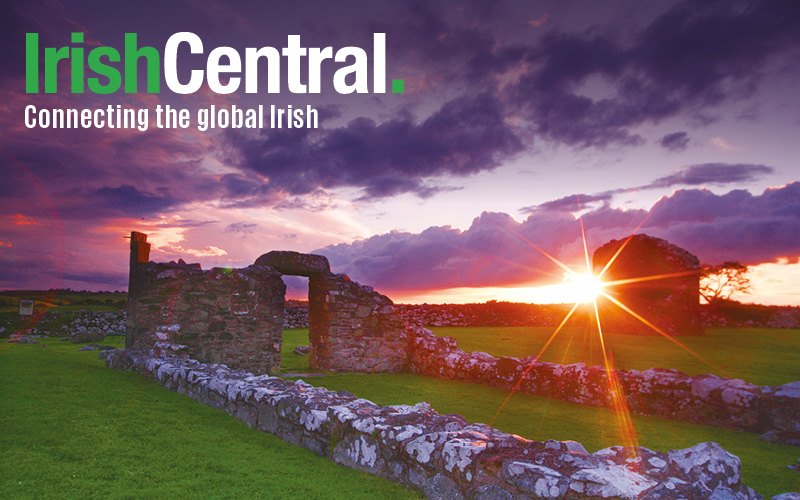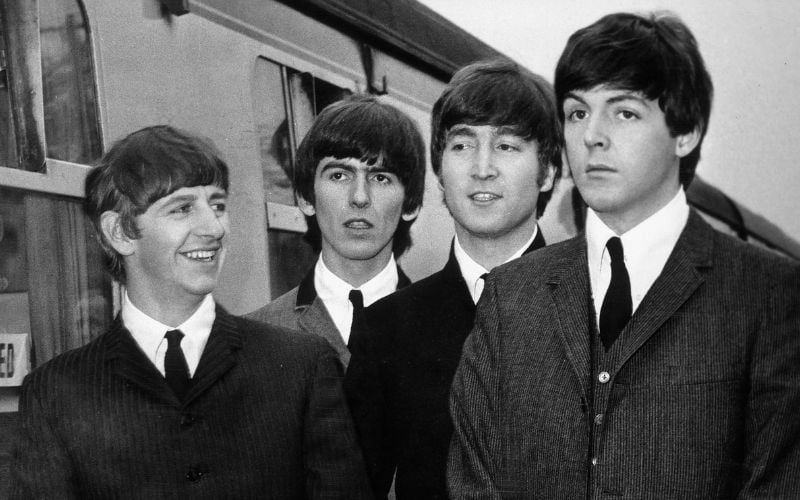| Illustration by Caty Bartholomew |
At some point after the couple exchanged their rings of love at the altar, there was a real Gaelic musical celebration of the occasion. Even the beautiful dark-haired bride left her new husband for the interlude as she joined her five sisters and her sisters-in-law in a deeply rich Celtic choral celebration of that day of joy.
The common chordage of their native tongue, there in the heart of the Donegal Irish-speaking Gaeltacht, magnificently rendered and rounded by the acoustics of the chapel, was uniquely special and unforgettable. It came from one of the auricles of the real heart of Ireland, and I was deeply moved.
It happened that the bride Aine was my new daughter-in-law, wife of third son Dara, and that it was a family wedding, but I would have been equally impressed and moved if I had strayed into the chapel by total accident.
And it was on that day, and the long musical night after the wedding feast (with the daughters singing away until dawn, not a bother on them!) that I met and spent time with the gentle father of the whole clan, Sean Mac Niallais of Derrybeg.
He was the kind of Irishman and gentleman and folk scholarly Republican you could spend a winter of nights listening to but, sadly, I only had the benefit of one wedding weekend. Sean, deeply mourned and missed by all who knew him, and especially by his extended clan, died in Letterkenny Hospital after a short illness a couple of weeks ago.
It was typical of him that he was delighted to have attended Donegal's historic Croke Park win just before he was taken ill. All his life, if it was a Gaelic occasion or celebration (and especially if there was a bit of set-dancing!) he was there at the heart of it from Malin to Mizen.
I'm deeply bereft. I will leave it at that. He is surely in Heaven.
And if he is there he will surely soon meet another very special friend of mine, Mrs. Anna O'Neill from Newmarket-on-Fergus, who departed from us in her indomitable nineties at around the same time.
Ironically and uniquely I was in hospital (nothing serious) and missed her funeral too, but the lady known as Mrs. Anna in Clare, and the proprietor of what is internationally known as the Greatest Small Irish Pub of them all, was virtually as well-known and respected in America as she was at home.
She was made a freewoman of several States in her visits there, numbered several governors of all parties among her friends, and always created a special Cead Mile Failte in her tiny but always throbbing pub in the town.
Many's the singsong I've enjoyed there over the last decade, and invariably the clientele included the latest American-based friends. They always got a special house drink for their first visit too, and that is a tradition which the great Mrs. Anna's daughters will bring into the future with them.
I will miss her a lot. RIP.
Now that's quite enough of sad yarns from me, and ye are having hard times enough over there yourselves, so can I change frequencies entirely and amaze many of you by accurately reporting and predicting that Irish farmers will soon be breeding thousands of huge rats, largely but not entirely for export!
Some of you will think I've gone totally off my trolley at last, but I am asserting powerfully that this new kind of farming will be happening soon as an imaginative and truly entrepreneurial answer to hard economic times.
You see, we have long had a farming connection with East Africa through the splendid aid organization Bothar, which collects heifer and goat gifts from Irish farmers and exports them to African farmers in poor areas as a practical help to them.
What has now emerged, however, is that in the region generally the preferred meat delicacy for the general population comes from what they call Grasscutters but which, in reality, are wild cane rats, hybrids involving beavers as well.
They are so popular (and expensive) in the region that wealthy families pay big money to have them on their tables for the Christmas dinner. Farmers in Ghana, especially, are earning twice the national average wage by breeding and selling them.
There is even a thriving export market to the ethnic markets in Britain and (swallow deeply!) the United States.
Bothar is a progressive organization and will soon be spreading the message among Irish farmers. And the bravest and brightest of them will be making big headlines one of these fine days for sure.
When that day comes remember you read it here first. And if ye need confirmation and don't believe MacConnell then check out the Heifer Ghana website now!




Comments